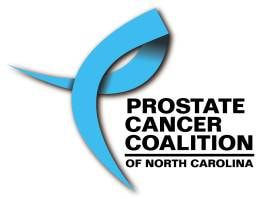June 2024 the PCCNC launches Grow Your Own Way: Cuts & Conversations
...the first pillar of our community program frameworks - FREE to adopt and adapt to suit the needs of your community.
Scroll down for your FREE Performance Package Upgrades
...the first pillar of our community program frameworks - FREE to adopt and adapt to suit the needs of your community.
Scroll down for your FREE Performance Package Upgrades
- What is it? An "open-source" program brought to you by the Prostate Cancer Coalition of NC.
- Besides awareness, what are we growing? Relationships with your own community and capacity to respond to the unique needs of your own community - all your own way!
- Who is "we"? Anyone who wants to adopt and implement program components within the microcosm of your own community.
- What is our message? We don't exist in silos, and the same applies to our respective health conditions. This campaign is not just about raising awareness of prostate cancer, but also the connection it has to mental health before, during, and after diagnosis. Additionally, we seek to engage younger men in health awareness by including the other cancer specifically impacting men, testicular cancer - which is more commonly diagnosed in men age 14-35 - alongside their future risk of developing prostate cancer, which may already be affecting them via its impact on the older men in their lives (fathers, uncles, grandfathers, mentors, etc.).
1st Generation Tool Kit
Performance Package Upgrades
Key Takeaways from Dr. PSA
- To fully understand your personal prostate cancer risk, have a baseline PSA in your 40s. (Ref. question #4 in the Dr. PSA brochure)
- All major and trusted guidelines suggest risk stratifying discussions about screening. Hint: that means considering race, family history, and baseline PSA.
Why should I have a baseline PSA in my 40s?
Video length: 2 minutes 7 seconds
Do I Really Need a DRE?
Video length: 5 minutes 59 seconds
Key Takeaways from PHENPATH.COM: For Men Who Are Newly Diagnosed with Prostate Cancer, or Whose Cancer Has Returned or Spread
- Gather critical information from your doctor: PSA history/results, biopsy report(s), documentation of your clinical stage, and any other relevant tests and scans.
- Use that information to see which risk group you are in.
- Based on your risk group, find out which treatment options are appropriate to consider based on personal risk.
Free Genetic Testing for Men Who Have or Have Had Prostate Cancer
Video length: 1 minutes 41 seconds
Male Cancers: Support Resources
For men with cancer:
- Living With Cancer: Men With Cancer Support Group - a highly structured 8 week program facilitated by an Oncology Social Worker.
- MaleCare - offers a variety of groups for men with specific circumstances that may not be actively relatable in a more generalized setting.
- Man Up to Cancer: The Howling Place - best described as a brotherhood of men with cancer, this program also features an annual retreat, The Gathering of Wolves.
- Reel Recovery - fishing retreats for men with cancer!
- Our homepage features a listing of all known and active prostate cancer support groups in North Carolina. If you know a prostate cancer support group in North Carolina that is missing from this listing, please email us their details!
- Us TOO support groups - a large international network of prostate cancer support groups. Many are more educational in nature, but each has its own character.
- Testicular Cancer Society: Support for Fighters - a variety of support programs for men with testicular cancer.
- Testicular Cancer Foundation - virtual support groups for men with testicular cancer.
- Raleigh Testicular Cancer Foundation: Patient Support Program - personalized need-based support for men with testicular cancer.
Other
A big thank you to our Grow Your Own Way founding supporters for appreciating the novelty of this exciting new approach to fighting prostate cancer and all forms of suffering that might occur due to the disease. We too are proud of the work you do!
By working together, the citizens of North Carolina will see a day when prostate cancer is no longer a threat to the families of our state.
In some parts of NC the prostate cancer death rates are so high, and disparities so pronounced, it is almost definitely a combination of factors. Genes and genetic mutations likely play a major role. The PROMISE Registry is currently available at no cost. The test is a simple cheek swab that can be done in the convenience of wherever you feel comfortable. Your confidential results will tell you if you have an identified gene mutation that increases your risk. If you do, you will be assigned a genetic counselor and receive updates on new treatments that might more specifically help YOU - please take a minute to check out their website and learn more!







